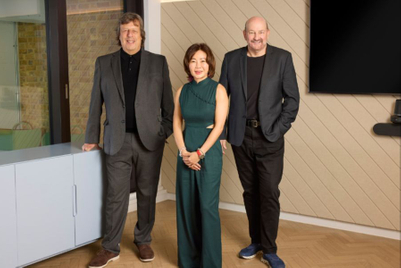
When Minority Report was released in 2002, it wowed us with the future of advertising: ad targeting, dynamic creative, in-store CRM, facial recognition. The movie is set in 2054, and since all that technology is already available today, almost two decades too early, we’re going to need a different paradigm for what the future of advertising may look like.
Let’s just put our sights 10 years ahead to 2026. We know that the world will be several degrees warmer, people will still buy more than they need, brands will still need to justify their premium, and nobody (hopefully) will be talking about digital anymore. Maybe CMOs will even be invited to the board.
No matter what the agency structure evolves to, who does the work and where that work goes, the Agency of the Year in 2026 will stand out in four ways: Creativity, data, technology and people. The categories may seem familiar in word, but they will be significantly different in description.
Creativity: To create great ideas, you need imagination. To be a great communicator, you need storytelling skills. Advertising will always be in the race for attention. It may be immersive. We may be walking into ads or taking holidays in branded realities. Hollywood can disrupt Madison Avenue in a more significant way than Google or Facebook. Today we say that whoever can capture the imagination in three seconds wins. Great storytelling will not only grab your attention, but it will hold you there for 130 minutes, or an entire season, for those binge watchers amongst us.
Data: When clients were looking for dynamic insights, agencies were busy focusing on digital capability. Meanwhile, consultancies like Accenture, IBM and Oracle were making their way to the table. But we shouldn’t get distracted by who’s come to play. Intelligence is power. Skills can, and will be, acquired. Ultimately, brands themselves will invest in harvesting their own data and shift research and budgets from rear-view to real-time. The agency of the future will read client data like DNA and use it to help companies grow, develop and succeed.
Technology: The Facebooks of this world will always cannibalise what’s new and promising in terms of technology. Like the mobile phone, eventually VR will be available to everyone. The cost of manufacturing will decrease and access will be democratised. It is not media platforms that will distinguish the great agencies from the good. It will be the ability to use technology to extract more from the client’s media spend and add value in determining if the work is helping sell more product.
People: There will definitely be forms of artificial intelligence in the room. McCann’s creative director AI-CD β is a start, but it requires the help of human beings to evolve. In 10 years, people will still need to work with people. It doesn’t matter if we will be working in an Uber model, doing marketing in-house or outsourcing through a media conglomerate. Companies with great internal and external collaboration culture will see great success. In-house agencies will work for brands at two extremes of the innovation spectrum. Above all, the best people will always be attracted to work for leaders who have a purposeful vision and offer opportunities to make a difference.
Shufen Goh is cofounder of R3 Worldwide and president of the Institute of Advertising Singapore.
Editor's note: By apparent coincidence, Goh is not the only person in the industry thinking about the predictions of Steven Spielberg's Minority Report lately.


.jpg&h=334&w=500&q=100&v=20250320&c=1)


.jpg&h=334&w=500&q=100&v=20250320&c=1)

.png&h=334&w=500&q=100&v=20250320&c=1)
.jpg&h=334&w=500&q=100&v=20250320&c=1)







.jpg&h=268&w=401&q=100&v=20250320&c=1)


